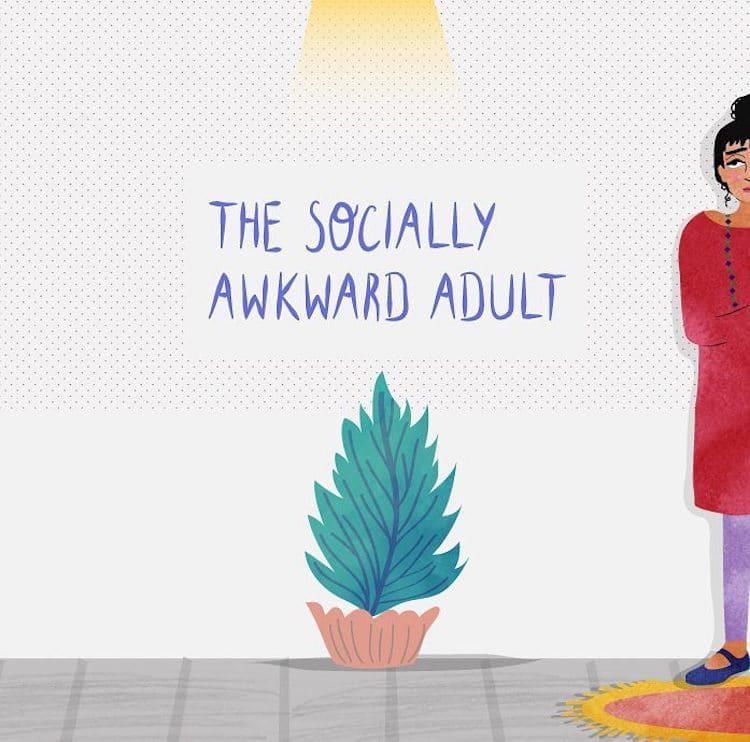
When you’re at a party, are you more comfortable talking to people… or hanging out with the family pet?
If you answered the latter, then chances are you're an introvert. Below illustration captures this nervousness and loathe of chit-chat in her series Socially Awkward Adult. The animated GIFs, still illustrations, and writing depicts her as an introverted character navigating the perils of get-togethers. From restless toe-tapping to staking out a spot on the wall, the subtle movements in her GIFs are expressions of the anxiety she feels inside.
If you answered the latter, then chances are you're an introvert. Below illustration captures this nervousness and loathe of chit-chat in her series Socially Awkward Adult. The animated GIFs, still illustrations, and writing depicts her as an introverted character navigating the perils of get-togethers. From restless toe-tapping to staking out a spot on the wall, the subtle movements in her GIFs are expressions of the anxiety she feels inside.
“My friends find it hard to introduce me, since they know my standard courtesies would include just a string of awkward giggles. Believe me, I have tried! I’ve gone up to people with the intention of having a meaningful conversation, only to blurt out lines like, ‘hi-you-look-taller-on-Instagram.’”
Socially Awkward Adult is a work of satire, but if you're someone with the classic introvert character traits, you might be laughing as you shake your head in affirmation—that you, too, want nothing more than to curl up on the couch and watch Netflix (alone) on a Friday night. 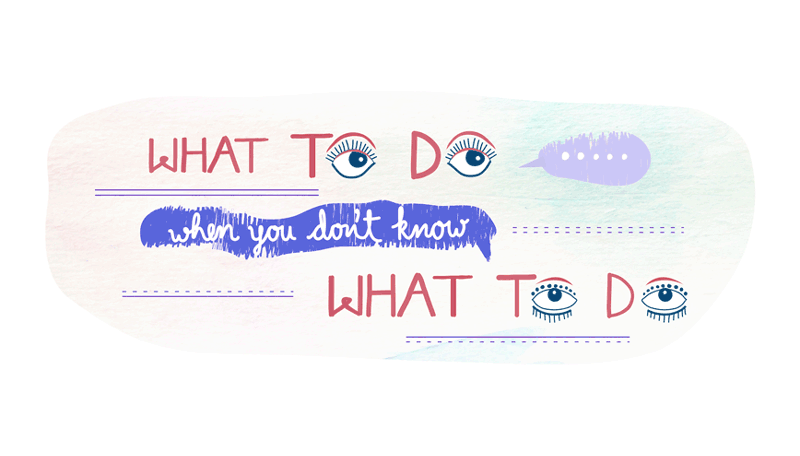

I arrive at any gathering with unparalleled optimism, which I gulp down with the first bottle of soda. It probably takes me ten more minutes before I can drag the definition of wallflower to a whole new level.
In a series of illustrations, animations, and writing, she describes the perils of party going.
When speaking out loud, finding the right word can be hard, because we tend to use long-term memory rather than short-term memory, writes Laney. It takes longer to retrieve words and information from long-term memory, so we often find ourselves speaking slowly or feeling tongue-tied. If you want to know what we really think, ask us to write about our thoughts (writing uses different pathways in the brain, which seem to flow fluently for introverts). Or tell us we don’t have to answer right away.
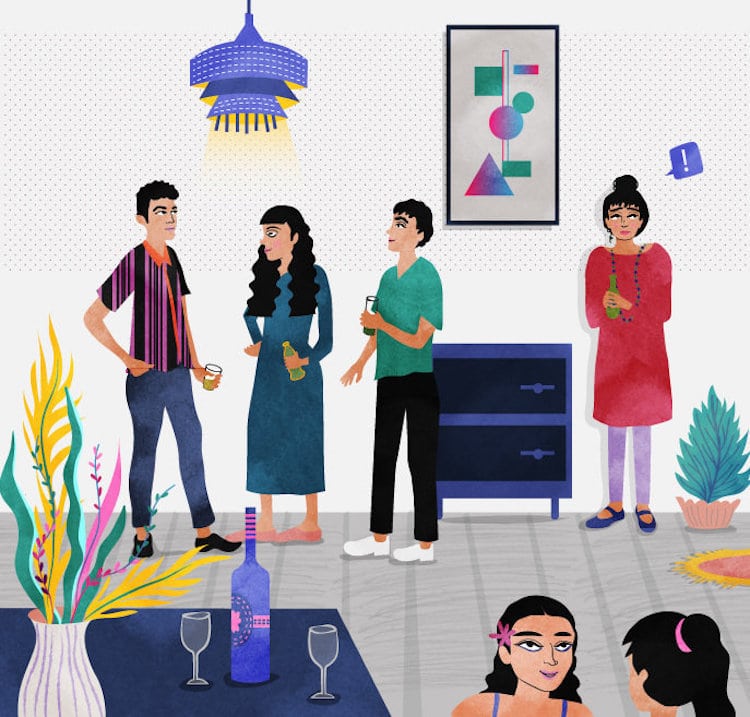
At any gathering, I easily can spot atleast five people who I know from Instagram. I know how they woke up, and what they ate for breakfast. I find myself awkwardly smiling at them. Now what? Do I go say hello? How does one not cross the fine line between being quirky and creepy? My heart rate could positively make an ECG go kaput.
Introversion is one of the major personality traits identified in many theories of personality. People who are introverted tend to be inward turning, or focused more on internal thoughts, feelings and moods rather than seeking out external stimulation. Introversion is generally viewed as existing as part of a continuum along with extroversion. Introversion indicates one end of the scale, while extroversion represents the other end.
The terms introversion and extroversion (also often spelled extraversion) were popularized through the work of Carl Jung and later became central parts of other prominent theories including the big 5 theory of personality. The introversion-extroversion dimension is also one of the four areas identified by the Myers-Briggs Type Indicator (MBTI).
According to many theories of personality, everyone has some degree of both introversion and extroversion. However, people often tend to lean one way or the other.
Introverts tend to be more quiet, reserved, and introspective. Unlike extroverts who gain energy from social interaction, introverts have to expend energy in social situations.
After attending a party or spending time in a large group of people, introverts often feel a need to "recharge" by spending a period of time alone.
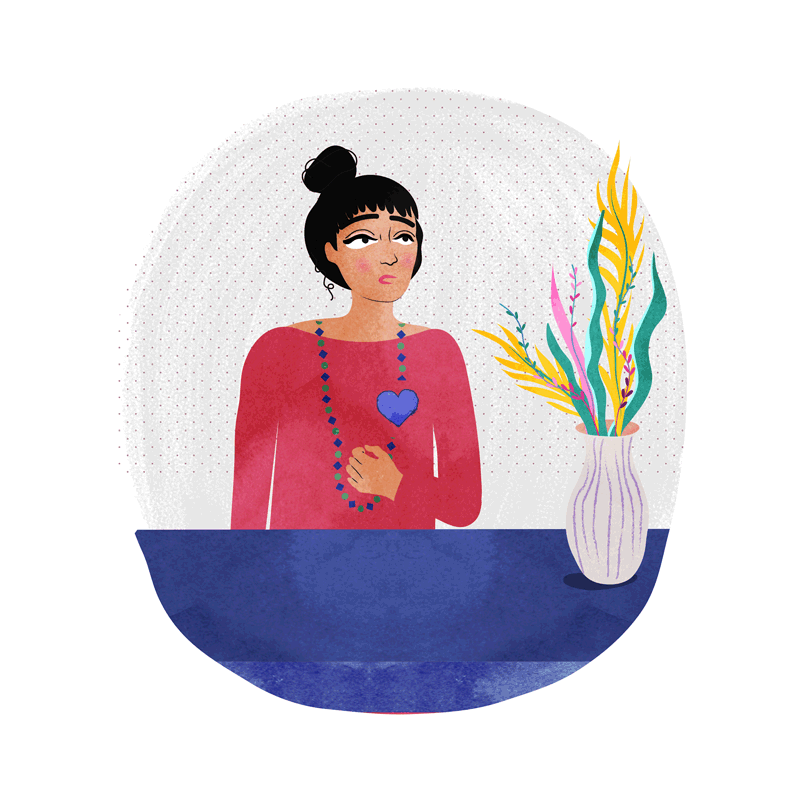
A nice stranger sometimes dares to make the first move, overlooking the obvious awkwardness written all over my face. My small talk contains a cross between squinting for answers and endless batting of eyelashes. Sorry, nice stranger.
If you have these same introvert character traits, you'll probably relate to her struggle. Causes
In order to know why some people are introverted and some people are extroverted, it is important to understand the role that your body's physiology plays. The way that your body responds to the outside environment plays a critical role in determining your level of extroversion and introversion.
On a physiological level, a network of neurons located in the brainstem known as the reticular activating system (RAS) is responsible for regulating arousal levels including wakefulness and transitions between sleeping and waking.
The RAS also plays a role in controlling how much information you take in while you are awake. When confronted by potential threats in the environment, the RAS will increase your arousal levels in order for you to be alert and ready to deal with the danger. Each person has a basic set point in terms of arousal level. Some people tend to naturally have a much higher set point, while others have a much lower set point.
They psychologist Hans Eysenck suggested that these arousal levels could be thought of as a continuum.
According to his arousal theory of extroversion:
- 15 percent of people have a minimal set point, meaning they naturally have low arousal levels
- 15 percent of people have a high set point, meaning they naturally tend to be more aroused
- 70 percent of people lie somewhere in the middle of the continuum
According to Eysenck's theory, introverts are those that have naturally high levels of arousal. Because introverts tend to experience chronically high arousal levels, they tend to seek activities and environments where they can escape from overstimulation. Because of their naturally high arousal levels, they are more alert and take in more information from the environment.
Escaping somewhere to have time alone to recharge gives them the opportunity to process and reflect on what they have learned.
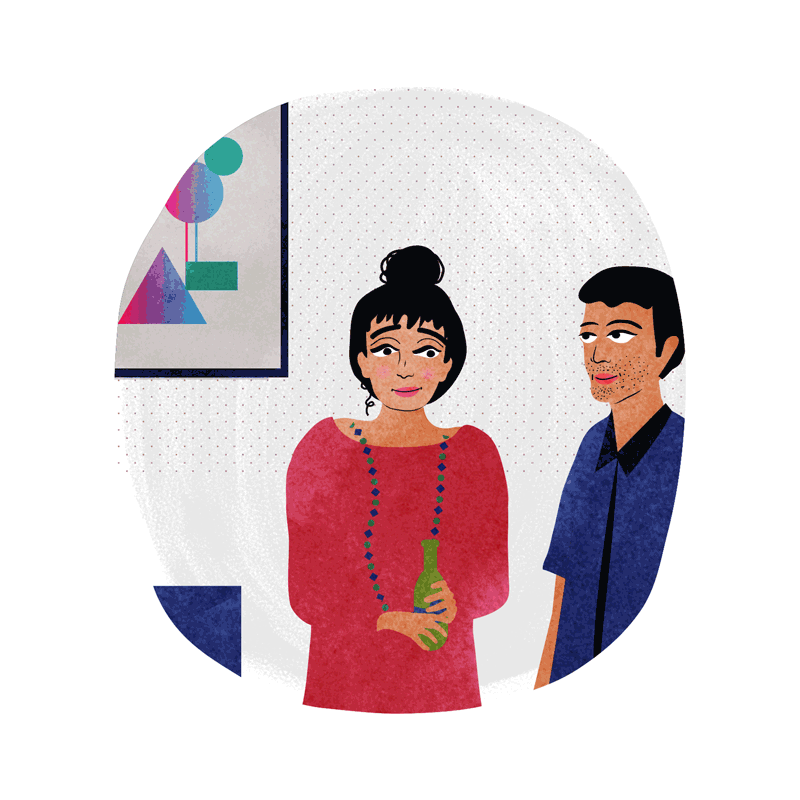
When I get introduced to a stranger and the mutual friend gets distracted by a fresh round of incoming snacks, only to never come back. This is what my nightmares are made up. All I can do is to nervously tap my feet and wait for a messiah to sweep the stranger away.
Being Around Lots of People Drains Your Energy
Do you ever feel exhausted after spending time with a lot of people? After a day interacting with others, do you often need to retreat to a quiet place and have an extended amount of time all to yourself? One of the major characteristics of this personality type is that introverts have to expend energy in social situations, unlike extroverts who gain energy from such interactions.
That doesn't mean that all introverts avoid social events altogether.
Many introverts actually enjoy spending time around others, with one key caveat – introverts tend to prefer the company of close friends. While an extrovert might go to a party with the goal to meet new people, an introvert intends to spend quality time talking to good friends.
You Enjoy Solitude
As an introvert, your idea of a good time is a quiet afternoon to yourself to enjoy your hobbies and interests.
A few hours alone with a good book, a peaceful nature walk or your favorite television program are great ways to help you feel recharged and energized.
This does not mean that the average introvert wants to be alone all the time. Many introverts love spending time with friends and interacting with familiar people in social situations. They key thing to remember is that after a long day of social activity, an introvert will probably want to retreat to a quiet place to think, reflect, and recharge.
If having a few hours to be alone sounds like your idea of a good time, you just might be an introvert.
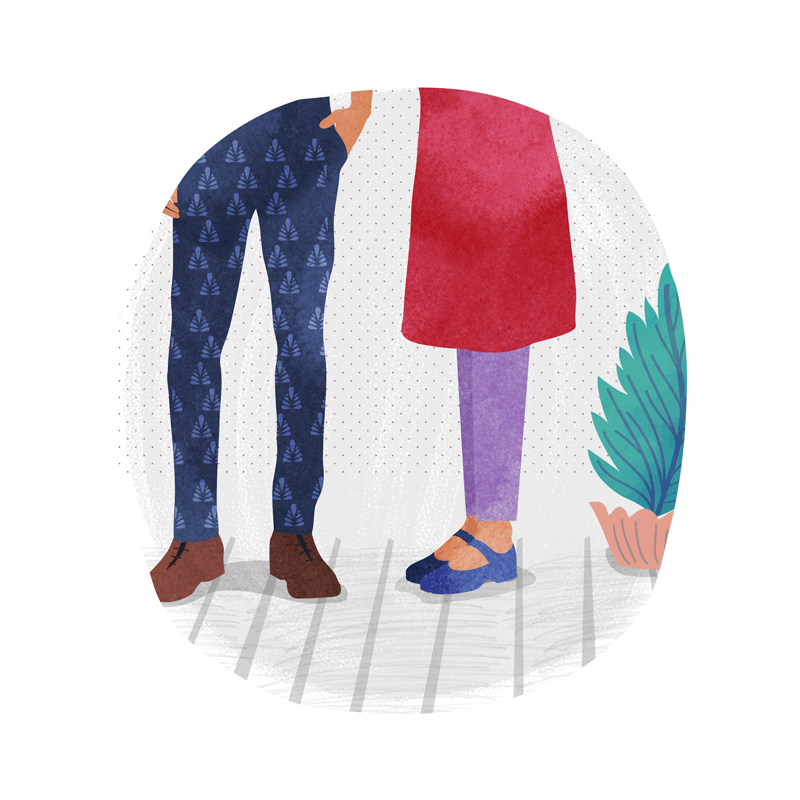
The combination of being introverted and having strong opinions can be detrimental to your own well-being. More often than not, I end up striking all great arguments in my head. Obviously, fearing what finally comes out of my mouth will be gibberish. Sigh!
You Have a Small Group of Close Friends
One common misconception about introverts is that they don't like people. While introverts typically do not enjoy a great deal of socializing, they do enjoy having a small group of friends to whom they are particularly close. Instead of having a large social circle of people they know only on a superficial level, introverts prefer to stick to deep, long-lasting relationships marked by a great deal of closeness and intimacy.
Researchers have found that people high in this trait tend to have a smaller group of friends. While extroverts generally have a wide circle of friends and acquaintances, introverts typically choose their friends much more carefully. Their closest relationships tend to be profound and significant. They also prefer to interact with people on a one-on-one basis rather than in a large group setting.
If your social circle tends to be small but very close, there's a pretty good chance you are an introvert.
People Often Describe You as Quiet and May Find It Difficult to Get to Know You
Introverts are often described as quiet, reserved, mellow and are sometimes mistaken for being shy.
While some introverts certainly are shy, people certainly should not mistake an introvert's reserve for timidity. In many cases, people with this personality type simply prefer to choose their words carefully and not waste time or energy on needless chit-chat.
If you are the quiet type and a bit reserved, you probably are an introvert.
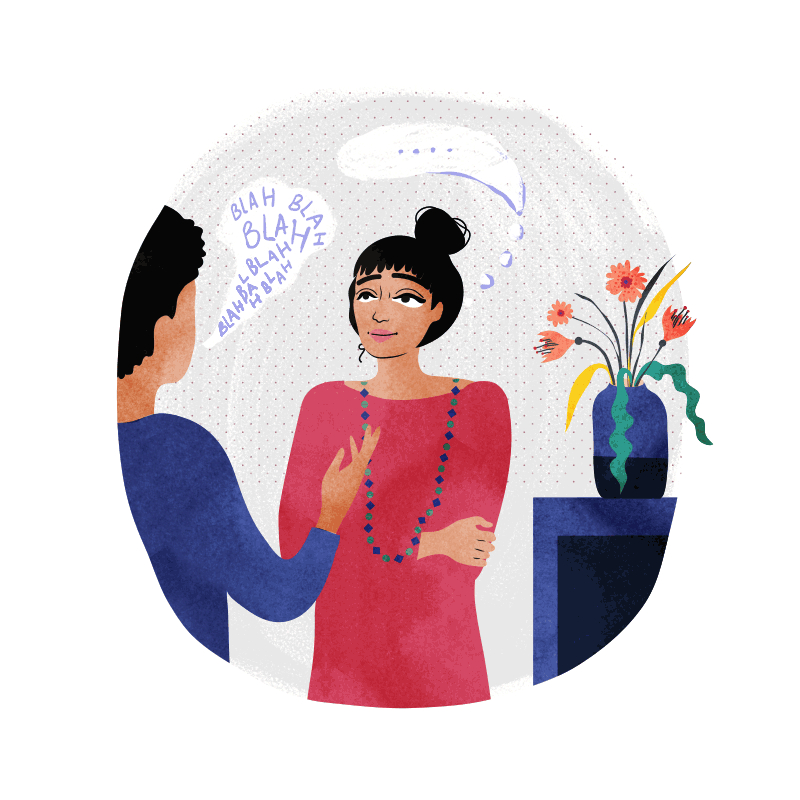
After a few exasperating hours of exchanging awkward glances with strangers, I curl up in a corner at last. Failing at not having attempted half decent conversation with anyone, I end up watching the same people on social media.
Too Much Stimulation Leaves You Feeling Distracted and Unfocused
Too Much Stimulation Leaves You Feeling Distracted and Unfocused
When introverts have to spend time in activities or environments that are very hectic, they can end up feeling unfocused and overwhelmed. Extroverts, on the other hand, tend to thrive in situations where there is a lot of activity and few chances of becoming bored.
According to at least one study, researchers have found that introverts tend to be more easily distracted than extroverts, which is part of the reason why introverts tend to prefer a quieter, less harried setting.
If you tend to feel overwhelmed in busy social situations, you probably tend to be an introvert.
You Are Very Self-Aware
Because introverts tend to be inward-turning, they also spend a great deal of time examining their own internal experiences. If you feel like you have a very good knowledge and insight into yourself, your motivations, and your feelings, you might be more of an introvert.
Introverts tend to enjoy simply thinking about and examining things in their own minds. Self-awareness and self-understanding is important to introverts, so they often devote a great deal of time to learning more about themselves. This might involve exploring hobbies they enjoy, thinking about their lives, and reading books that explore themes and topics that are important to them.
If you feel that you are self-aware and enjoy gaining deep knowledge about yourself, then you might be more of an introvert.
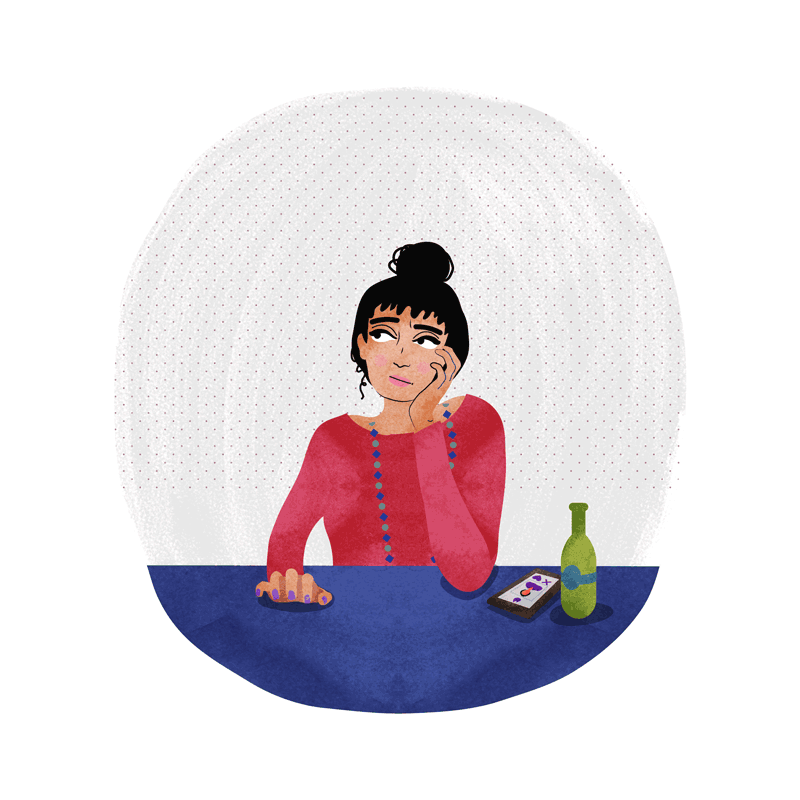
After a few exasperating hours of exchanging awkward glances with strangers, I curl up in a corner at last. Failing at not having attempted half decent conversation with anyone, I end up watching the same people on social media.
You Like to Learn By Watching
You Like to Learn By Watching
Where extroverts tend to prefer to jump right in and learn though hands-on experience, introverts typically prefer learning through observation. While extroverts typically learn through trial and error, introverts learn best by watching.
Introverts like to watch others perform a task, often repeatedly, until they feel that they can replicate the actions on their own. When introverts do learn from personal experience, they prefer to practice somewhere private where they can build their skills and abilities without having to perform for an audience.
If you like to learn more by watching rather than doing, there is a chance that you have a more introverted personality.
You Are Drawn to Jobs That Involve Independence
As you might imagine, jobs that require a great deal of social interaction usually hold little appeal to people high in introversion. On the other hand, careers that involve working independently are often a great choice for introverts. For example, an introvert might enjoy working as a writer, accountant, computer programmer, graphic designer, pharmacist, or artist.

No comments:
Post a Comment